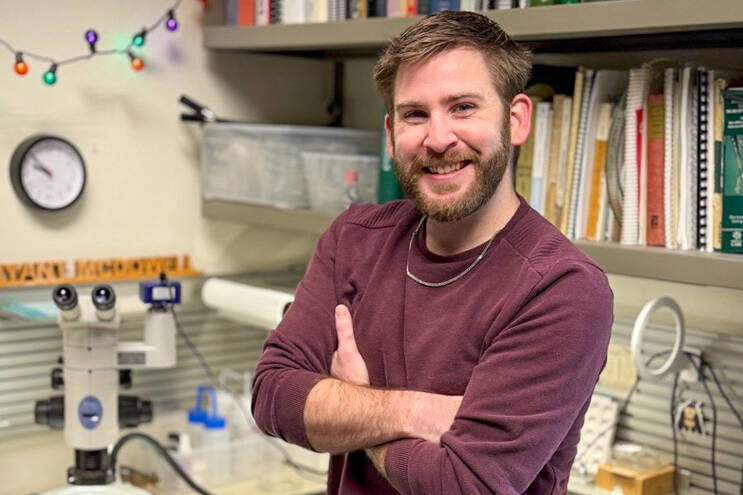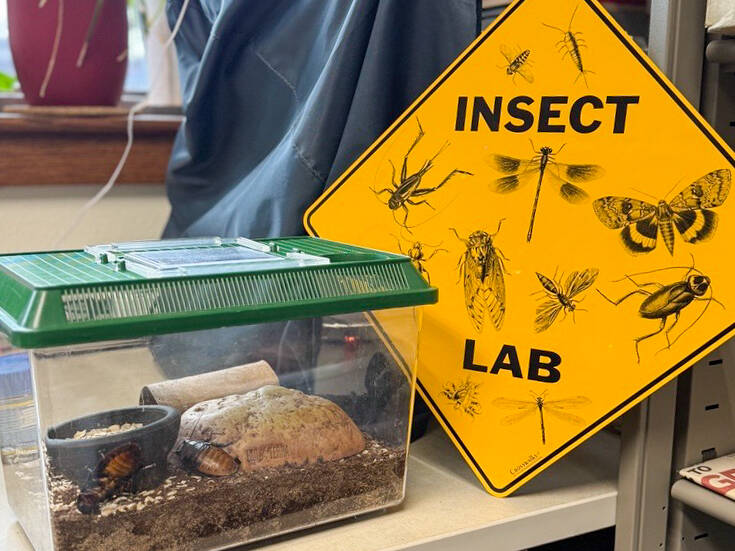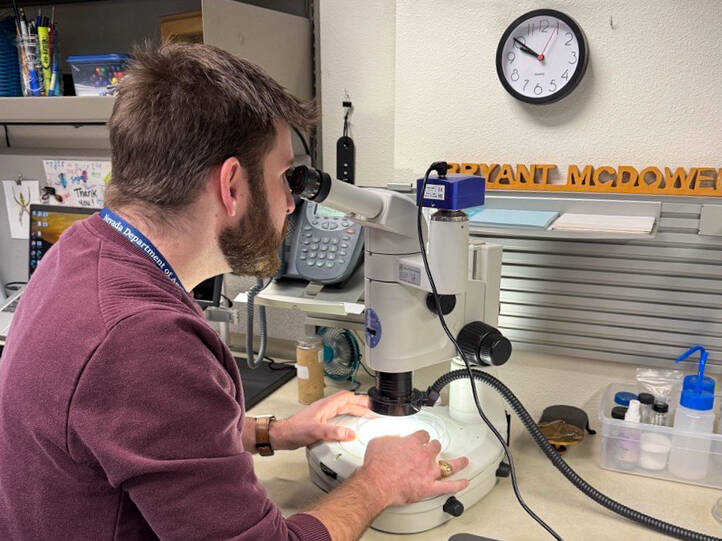‘Not a stodgy, professor-type entomologist’: Nevada’s new bug czar has arrived
The Silver State has its fair share of pesky pests that bug residents every year.
But Bryant McDowell, the 33-year-old newly appointed state entomologist, says it’s generally on humans to adapt — not the critters.
“There’s a joke I tell people: It’s the insects’ world, and we’re living in it,” McDowell said in an interview this month.
The state official, who works within the Nevada Department of Agriculture out of Sparks, is a Texas native who is responsible for spreading awareness about how to better live alongside insects.
McDowell will work on initiatives to protect Nevada farms and natural resources from invasive pests, assist with statewide plant health programs, and manage the department’s entomology laboratory and collection.
In September, McDowell took the mantle from longtime Nevada entomologist Jeff Knight, who had served in the role since 1993 and worked in the department for another decade before that. Knight served as a go-to source for news media seeking scientific information about swarms of bugs that inconvenience everyday Nevadans, whether that’s Clark County’s growing mosquito population or a sudden onslaught of Mormon crickets or grasshoppers.
“We are thrilled to welcome Bryant into this critical role,” Division of Plant Health and Compliance Administrator Meghan Brown said in a statement. “His academic training, field experience and passion for public education will be instrumental in protecting Nevada’s agricultural integrity and supporting our producers.”
From Texas to Nevada
Prior to moving to Nevada, McDowell worked at Texas A&M University’s AgriLife Extension, helping to run the IPM Experience House — a training facility styled like a home in Dallas that gives hands-on training experiences for those in pest management.
Both his bachelor’s and master’s degrees are from Texas A&M, where his graduate research focused on population genetics and colony breeding structures of the invasive tawny crazy ant.
The ant was discovered in Texas in 2002, spreading widely with human assistance and becoming an issue for farmers, biting people and livestock and chewing through electric systems.
“It’s kind of like Mormon crickets, where the ground is just moving,” McDowell said. “Imagine that, but millions of tiny ants in the same way.”
Molly Keck, a senior extension program specialist and entomologist at AgriLife Extension, said she thinks McDowell has the right demeanor and approach to the field for such a public-facing role.
Keck said she met McDowell when he interned for her as an undergraduate student and knew early on that she wanted to find a long-term role for him within the extension program.
McDowell is always looking for new ways to elevate his own knowledge and communicate science better, she said.
“He’s not a stodgy, professor-type entomologist,” Keck said. “He’s constantly sending me and another colleague texts about what he’s doing and what he got to see. It sounds like what he’s doing, he’s ready for.”
Reading, research and … summer camp?
For now, McDowell said he has a lifetime of reading and research to catch up on. Knight left him stacks of books to read, McDowell said, as he acclimates and soaks up as much knowledge as he can.
One of his favorite parts of outreach is working with youths to educate them about bugs.
Before he took his role at AgriLife Extension, he briefly left to teach high school forensics, anatomy and physiology, also organizing workshops for Future Farmers of America and 4-H students.
He recalls students, unlike adults, being open to handling particularly unpopular insects, like hissing cockroaches.
“Fear hasn’t been instilled in them. It’s like straight curiosity,” McDowell said. “There’s minimal hesitation when it comes to digging in the dirt, and it reminds me of my childhood and why I got into entomology.”
Hosting a summer camp or some other youth programming is a long-term goal of his, he said.
And McDowell will likely have a lot of time to do that in Nevada.
The state entomologist position is not one that scientists tend to leave. McDowell noted that it’s rare for one to be open, and the timing worked out. Knight, McDowell’s predecessor, was only the state’s third entomologist.
“There’s a lot of history in this office from someone that was in the position for decades before,” McDowell said. “It’s not something I take lightly, and I’m very excited to be here.”
Contact Alan Halaly at ahalaly@reviewjournal.com. Follow @AlanHalaly on X.





















